The Human Condition I: No Greater Love (Ningen No Joken: Dai 1 Hen, 人間の條件・第一・第二部)
Director – Masaki Kobayashi – 1959 – Japan – Cert. 15 – 208m
The Human Condition II: Road To Eternity (Ningen No Joken: Dai 2 Hen, 人間の條件・第三・第四部)
Director – Masaki Kobayashi – 1959 – Japan – Cert. 15 – 181m
The Human Condition III: A Soldier’s Prayer (Ningen No Joken: Kanketsu Hen, 人間の條件・完結篇)
Director – Masaki Kobayashi – 1961 – Japan – Cert. 15 – 190m
*****
The following review originally appeared in Funimation UK.
—
Jeremy Clarke on a live action Japanese classic.
The main reason Masaki Kobayashi’s extraordinary trilogy The Human Condition has been scarcely seen in the West is its daunting nine hours plus length. That’s no longer the case thanks to its UK release on DVD and Blu-ray.
The trilogy’s three constituent films released two in 1959 and one in 1961 clock in at over three hours apiece which makes it long by any standard. Ostensibly three films spread over three discs in the new release it is to all intents and purposes one very long movie helpfully broken into six numbered parts of roughly equal length. This big screen cinema release viewed on a home cinema platform today stands up well alongside many contemporary TV mini-series.
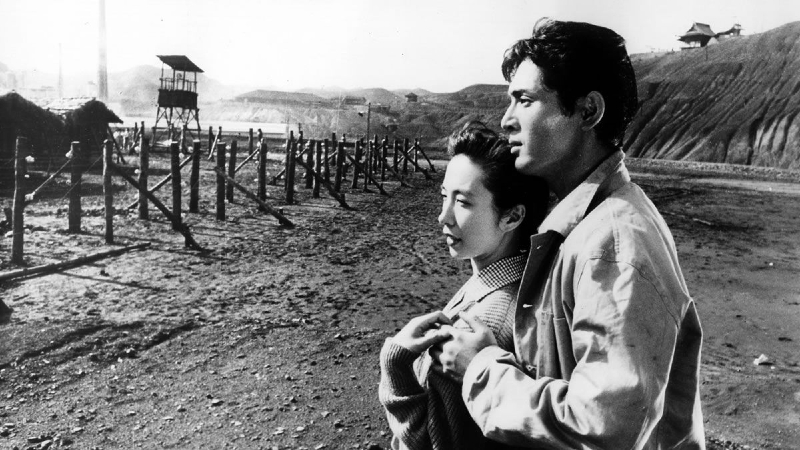
The novel on which it’s based by Junpei Gomikawa is based in part on his wartime experiences in the Imperial Army and is heavily critical of the militaristic regime behind them. It was published in six volumes between 1956 and 1958. When this became a bestseller it didn’t take long for a movie adaptation to go into production. As critic Philip Kemp points out in the disc’s specially filmed introduction, Shochiko Studios employee Kobayashi had himself been called up to serve in Japanese-occupied Manchuria during the war.
As a director Kobayashi subsequently found ways to express his resultant distrust of authority. In The Thick-Walled Room (1953) he controversially dealt with the taboo subject of Japanese war criminals to suggest that while those at the bottom who had taken orders were punished, those at the top who had given them were not. In Black River (1957) he focused on corruption and prostitution around US Army bases in Japan. Gomikawa’s novel was clearly a perfect match.
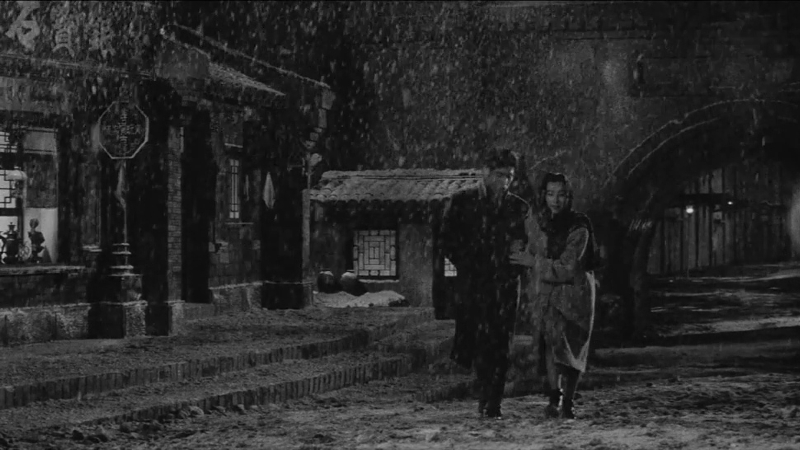
In the trilogy’s first film No Greater Love, the main protagonist Kaji (Tatsuya Nakadai) is a socialist and pacifist whose ideals are out of step with the deeply fascist regime of the late 1930s Japanese-occupied Manchuria under which he lives. He wants to marry the love of his life Michiko (Michiyo Aratama) but doesn’t do so for fear of conscription for military service.
His situation changes with a job offer by his employer to supervise the Chinese workforce of a mine. Exemption from conscription comes with the job. Kaji’s humanist designs for increasing production by treating his workforce better are consistently thwarted by colleagues and indeed a system which wants to achieve that increase by grinding its workforce into the dust.
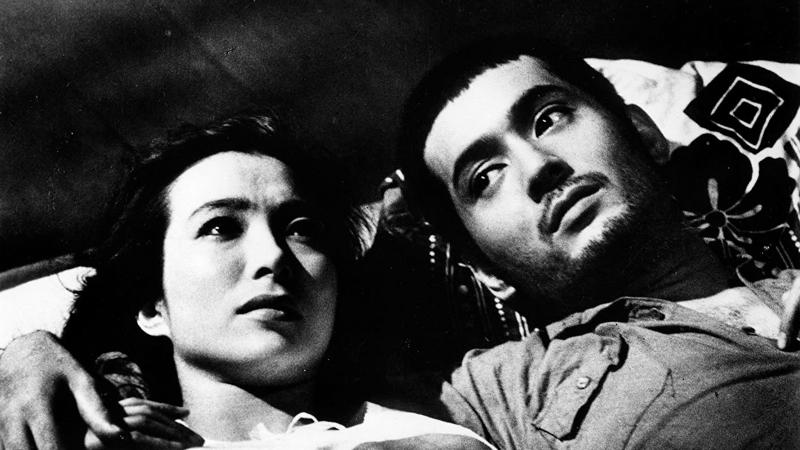
By the second film Road To Eternity, things have gone so badly wrong that Kaji does indeed get conscripted. His wife was already taking second place to his work in the first film and in the second she recedes further down the narrative’s list of characters in terms of onscreen presence.
As a recruit he is regarded ambivalently by the army as at once a possible troublemaker and the type that may well make the best sort of soldier. He witnesses first hand the sometimes fatal effects of bullying on new recruits. After being put in charge of some particularly vulnerable trainees, he finds himself dug in with a unit at the front being massacred by advancing Russians.
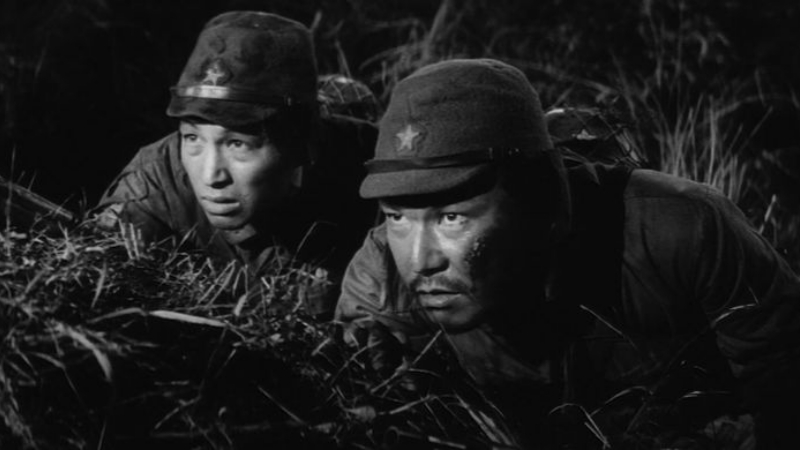
In the third and final film A Soldier’s Prayer, Kaji’s wife has become little more than a memory to who he’s vowed to return. Her voice is occasionally heard on the soundtrack in his thoughts and in one scene her face briefly replaces that of another female character.
Following his unit’s defeat at the end of the second film, Kaji and two other soldiers travel across country trying to get back to their former life. Eventually in a bizarre mirroring of his opening situation he finds himself a POW used as enforced labour in an isolated Russian camp from which escape would mean certain death in wintry conditions…
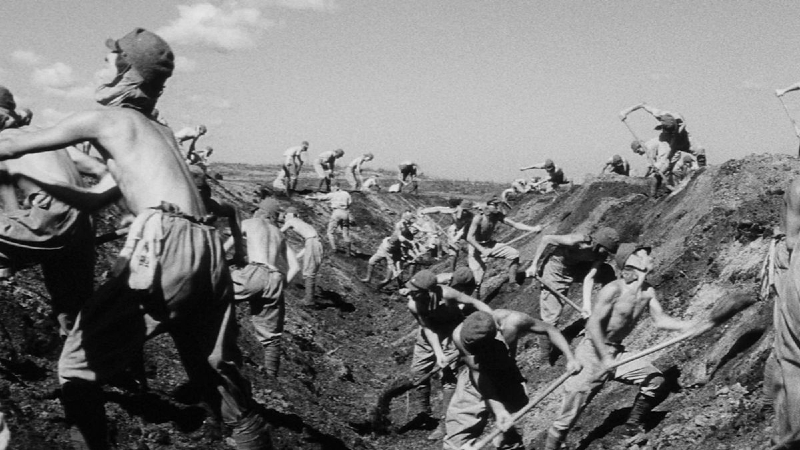
There’s a lot more to it than that basic outline might suggest but there’s very little narrative flab. The nine plus hours running length is worth it. The memorable cast of comparatively minor characters range from brutal work camp foremen, bullying army types including a head nurse through less abrasive colleagues, soldiers and refugees to more sympathetic characters who appear, disappear then reappear at various points throughout.
Longstanding Kurosawa favourite Tatsuya Nakadai will be familiar from such films as Seven Samurai (1954) and Ran (1985) which can currently be seen in the Japan 2020 season on BFI Player. He initially plays Kaji as a naive radical who trusts the company to respect his ideals. As various events change Kaji and the ways in which he deals with the world around him, the increasing strain seems to tell in Nakadai’s face.
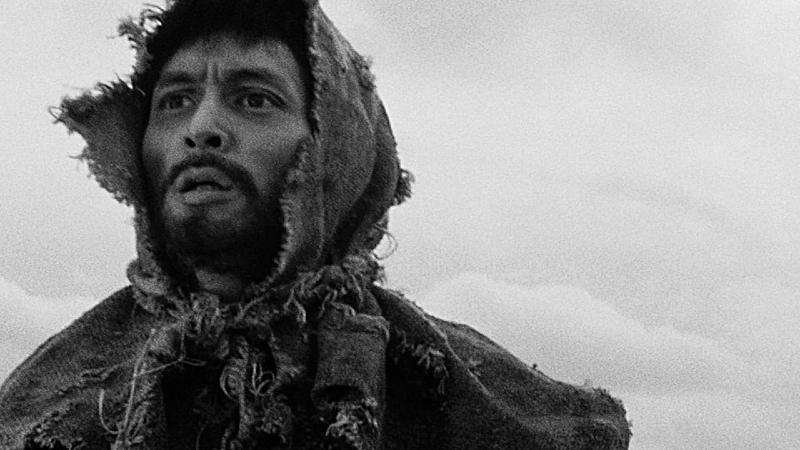
The devastating impact on those with whom Kaji comes into contact becomes increasingly apparent. A run-in with the Kenpaitai (the Japanese Military Police) at the end of the first film leads to his watching helplessly while Chinese workers are executed by decapitation to fall into a vast pit.
Towards the end of the third film he is reduced using a length of heavy chain to kill a particularly nasty Japanese collaborator with the Russians, dumping the dying man in a vat of sewage. By the very end he’s a mere husk of his former self crawling through a frozen wasteland.
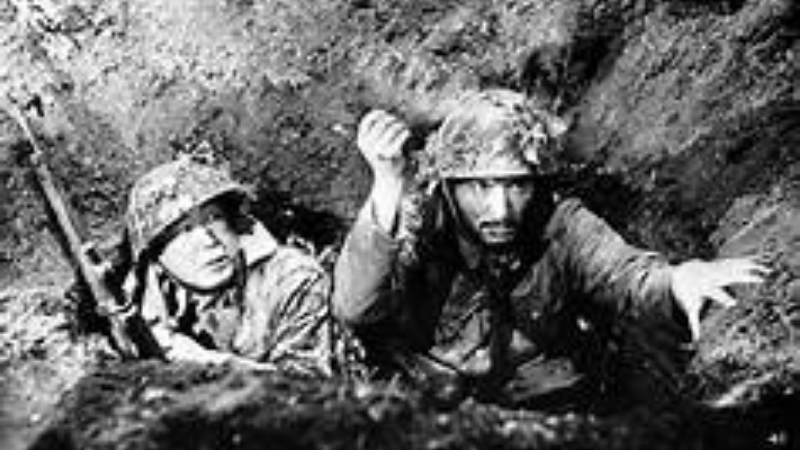
Kobayashi and his cameraman Yoshio Miyajima have a strong sense of scale which looks stunning on this Blu-ray transfer. Interiors in offices and barracks give way to increasingly claustrophobic exteriors. Tiny figures traverse vast, desolate landscapes. Soldiers in foxholes endure explosive enemy bombardment in minimal visibility. Groups push through forest foliage with no sense of their current location beyond the immediate dense vegetation and ever present tall trees.
Such bleak, widescreen imagery stands in as a metaphor for Kaji’s attempt at personal integrity in the face of his forced moral descent. The film may be largely unseen here and its length off-putting but it turns out well worth the effort.
The Human Condition Trilogy is released on dual format Blu-ray/DVD by Arrow Academy.
Trailer:
The above review originally appeared in Funimation UK.
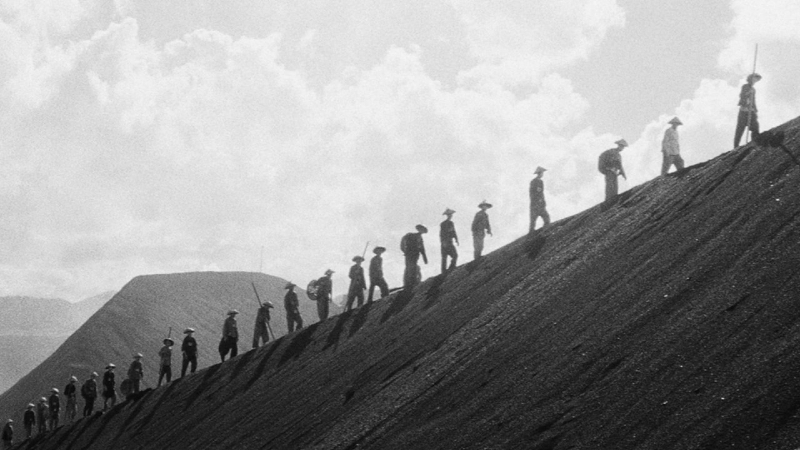
One reply on “The Human Condition
Trilogy
(Ningen
No Joken,
人間の條件)”
We love this movie!! Why we never seen it before? Thank you to TCM! We’re trying to see the part lll from Blue Ray DVD or any where that’s showing. Can’t wait. Love , tragic, lose , dignity of a soldier, man, husband and a friend.